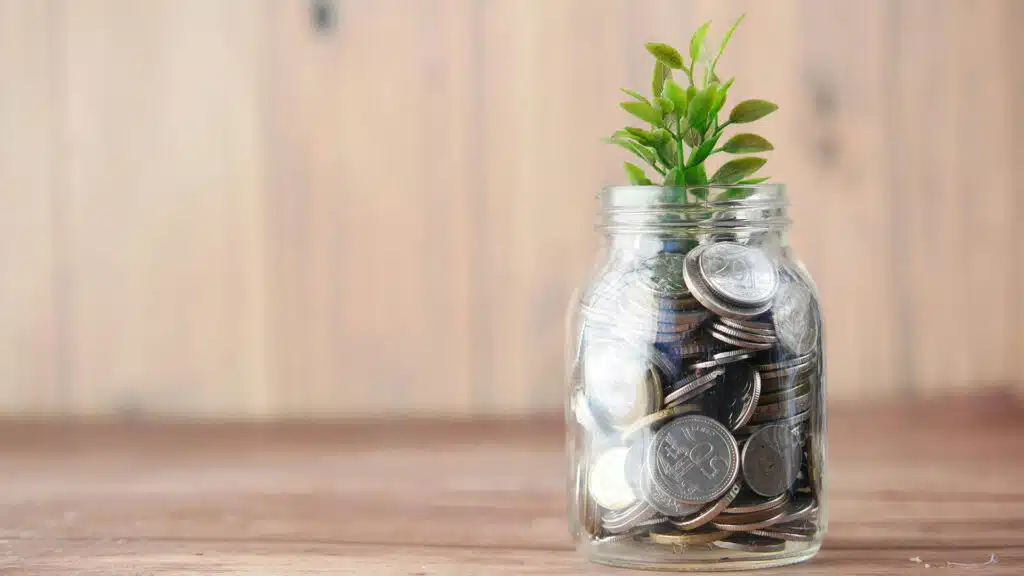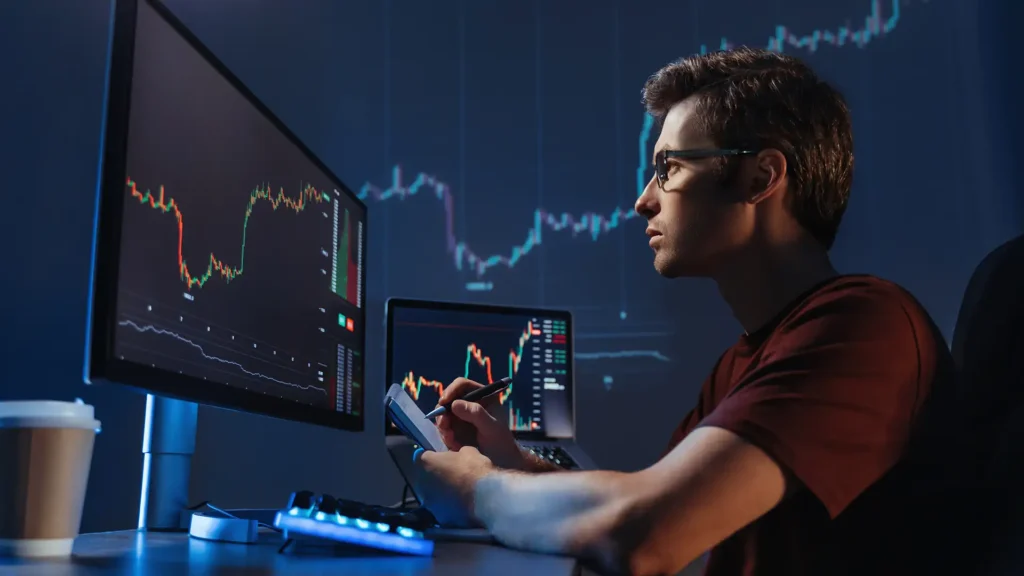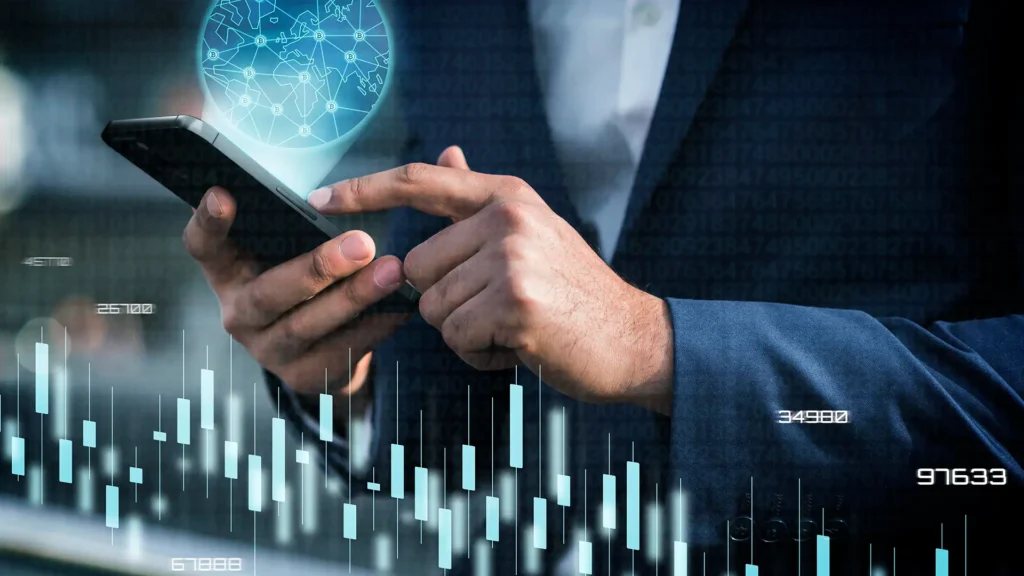Trending: Here are some Business Statistics and Trends to know

|
Getting your Trinity Audio player ready...
|
Have you heard the term “recession” thrown around in the news or conversations, but are unsure of what it means?
A recession is a term that is often used in discussions about the economy, but its definition and implications can be confusing. It is a period of economic decline where there is a significant decrease in economic activity, which can lead to job losses, reduced consumer spending, and a downward spiral in the stock market.
Understanding what a recession is and how it affects the economy is crucial for individuals and businesses alike. In this article, we will explore the definition of a recession, its causes, and its impact on the economy and everyday life.
Recession
A recession is a period when the economy declines significantly. It is usually defined as a period of two consecutive quarters of negative growth in the gross domestic product (GDP) or a fall in real GDP of at least 1%.
What is a Recession?
A recession is a period when there is a significant decline in overall economic activity in a designated geographic area. It is traditionally considered two consecutive quarters of economic downturn, as reflected by GDP and monthly indicators such as an increase in unemployment.
The National Bureau of Economic Research (NBER), which officially declares recessions, has changed its definition of recession. The NBER now defines a recession as a period when there is a significant decline in the overall level of economic activity spread throughout the whole economy for more than a couple of months.
Recessions and the Business Cycle
The business cycle describes how an economy alternates between expansion and recession periods. During an economic expansion, the economy sees healthy and sustainable growth. Over time, lenders become more willing to lend money, which encourages consumers and businesses to take out more loans. What follows is irrational exuberant behaviour which begins to overtake asset prices.
As the economic expansion continues to mature, asset values continue to rise more rapidly and debt loads continue to increase. At some point during an economic expansion, one of these phenomena derails the expansion. Shock bursts and asset bubbles cause large debts to become too expensive to maintain. This causes the stock market to crash. As a result, economic growth contracts and the economy goes into a recession.
If you’re an investor, one of the best things to do during a recession is to look for companies with low debt, strong cash flow, and strong financials. Avoid companies that are highly leveraged, cyclical, and speculative.
The Great Depression
The Great Depression began in 1929 and ended in 1933, but the economy didn’t start recovering until World War II, almost a decade later. Unemployment reached 25% during the Great Depression, and the economy contracted by 30%. It was the most unprecedented economic crash in modern American history.
By contrast, the Great Recession was worse than any previous recession, including the Great Depression. Unemployment peaked at around 10% during the Great Recession and the recession officially lasted for about a year and a quarter (December 2007 to June 2009).
Economists worry that the coronavirus crisis could turn into a full-blown economic depression. Unemployment reached 14.7% in May 2020, the highest level seen since the depths of the Great Recession.
What Causes Recessions?
Recession can be caused by a variety of factors, from sudden economic shocks to uncontrolled inflation. The following are some of the main drivers of a recession:
- A sudden economic shock: A sudden economic shock can create serious financial damage. For example, in the 1970s, OPEC cut off the supply of oil to the U.S. without warning, causing a recession. The recent coronavirus outbreak, which shut down economies worldwide, is another example of a sudden economic shock.
- Excessive debt: Excessive debt can also cause a recession. When individuals or businesses take on too much debt, they may not be able to pay their bills, leading to growing debt defaults and bankruptcies that can capsize the economy. The housing bubble in the mid-aughts that led to the Great Recession is a prime example of excessive debt causing a recession.
- Asset bubbles: Asset bubbles can also lead to a recession. When investing decisions are driven by emotion, bad economic outcomes aren’t far behind. For example, in the late 1990s, former Fed Chair Alan Greenspan referred to “irrational exuberance” in describing the outsized gains in the stock market. This inflated stock market or real estate bubble, when popped, can cause panic selling and crash the market, leading to a recession.
- Too much inflation: While inflation isn’t necessarily bad, excessive inflation can cause the central bank to raise interest rates, which depresses economic activity. In the 1970s, out-of-control inflation was an ongoing problem in the U.S. The Federal Reserve rapidly raised interest rates to break the cycle, which led to a recession.
- Too much deflation: Too much deflation can be even worse than runaway inflation. Deflation occurs when prices decline over time, causing wages to contract, which further depresses prices. When a deflationary feedback loop gets out of hand, people and businesses stop spending, undermining the economy. Central banks and economists have few tools to fix the underlying problems that cause deflation. Japan’s struggles with deflation throughout most of the 1990s caused a severe recession.
- Technological change: technological change can also lead to recession. While new inventions increase productivity and help the economy over the long term, there can be short-term periods of adjustment to technological breakthroughs. In the 19th century, waves of labour-saving technological improvements during the Industrial Revolution made entire professions obsolete, sparking recessions and hard times. Today, some economists worry that AI and robots could cause recessions by eliminating whole categories of jobs.
What’s the Difference Between a Recession and a Depression?
The difference between a recession and a depression is significant, as depressions have a much more severe impact. While both are caused by similar factors, including economic shocks, excessive debt, and asset bubbles, depressions lead to greater job losses, higher unemployment rates, and steeper declines in GDP.
Moreover, depressions last for years, not months, and it takes longer for the economy to recover from them.
Unlike recessions, there is no fixed definition or measurement to determine what counts as a depression.
However, it is generally agreed upon that all the impacts of depression are deeper and last longer than those of a recession. In the past century, the U.S. has experienced only one depression: The Great Depression, which lasted from 1929 to 1939 and had a profound impact on the country’s economy, politics, and society.
The Great Depression
The Great Depression was a severe economic downturn that began in 1929 and continued until 1933. Despite officially ending in 1933, the economy did not fully recover until the onset of World War II, almost a decade later. This recession is considered to be the most catastrophic economic collapse in modern U.S. history.
During the Great Depression, unemployment rates rose to an unprecedented 25%, and the GDP fell by a staggering 30%. By comparison, the Great Recession of 2007-2009 was the worst economic downturn since the Great Depression. During this period, unemployment rates peaked at around 10%, and the recession officially lasted for about a year and a half, from December 2007 to June 2009.
Today, some economists are concerned that the coronavirus recession could potentially transform into a depression, depending on its duration. The unemployment rate hit 14.7% in May 2020, the worst level seen since the depths of the Great Recession.
As such, there is much debate and speculation regarding the future of the global economy, particularly as it continues to navigate the ongoing impacts of the COVID-19 pandemic.
How Long Do Recessions Last?
The NBER tracks the average length of U.S. recessions. According to NBER data, from 1945 to 2009, the average recession lasted 11 months. This is an improvement over earlier eras: From 1854 to 1919, the average recession lasted 21.6 months.
Over the past 30 years, the U.S. has gone through four recessions. The Covid-19 Recession, which began in February 2020, lasted only two months, making it the shortest U.S. recession in history.
- The Great Recession (December 2007 to June 2009). The Great Recession caused in part by a bubble in the real estate market, lasted for 18 months, almost double the length of recent U.S. recessions. Although the Great Recession wasn’t as severe as the Great Depression, its long duration and severe effects earned it a similar moniker.
- The Dot Com Recession (March 2001 to November 2001). The Dot Com Recession happened at the turn of the millennium when the U.S. was facing several major economic problems, including fallout from the tech bubble crash and accounting scandals at companies like Enron, capped off by the 9/11 terrorist attacks. Together these troubles drove a brief recession, from which the economy quickly bounced back.
- The Gulf War Recession (July 1990 to March 1991). The Gulf War Recession was a short, eight-month recession that occurred partly due to spiking oil prices during the First Gulf War, at the start of the 1990s.
Can You Predict a Recession?
Given the uncertainty of economic forecasting, predicting future recessions is far from easy. The COVID-19 pandemic is a prime example, as it appeared seemingly out of nowhere in early 2020, and within a few months, the U.S. economy had been all but shut down, and millions of workers had lost their jobs.
Despite the challenge of prediction, there are indicators of a looming economic downturn. The following warning signs can give you more time to prepare for a recession before it happens:
- Yield Curve Inversions: The yield curve is a graphical representation of bond yields across different maturities. Inverted yield curves, where short-term rates are higher than long-term rates, have preceded every U.S. recession in the past 50 years. The yield curve inverted in 2019, and though it is no longer inverted, it remains relatively flat, which some economists take as a sign of caution.
- Slowing Job Growth: As the economy approaches full employment, job growth slows. A slowdown in job growth can indicate that the economy is headed for a recession. Moreover, job losses can cause a recession.
- Manufacturing Slowdown: Manufacturing is a major component of the economy, and a slowdown in manufacturing can signal an economic slowdown. Manufacturing activity in the U.S. declined in 2019, a sign that the economy might be headed for a recession.
- Consumer Sentiment: Consumer spending is a significant driver of the economy. As such, a decline in consumer sentiment can signal that the economy is headed for a recession. Consumer sentiment can be measured in various ways, including through surveys of consumer confidence.
- Leading Economic Indicators: Leading indicators are a composite of data that provide insights into the future direction of the economy. These include things like building permits, stock prices, and the average workweek. When leading indicators start to trend downward, it could be a sign of a looming recession.
- Sudden stock market declines: A large and sudden decrease in stock markets could be an indication of a recession approaching, since investors may sell off parts or all of their holdings in anticipation of an economic slowdown.
- Rising unemployment: If people are losing their jobs, it is a negative sign for the economy. Even if the National Bureau of Economic Research (NBER) has not officially declared a recession, just a few months of steep job losses is a significant indication of an impending recession.
Although these warning signs do not guarantee that a recession is imminent, monitoring them can help individuals and businesses prepare for a potential economic downturn.
How Does a Recession Affect Me?
A recession can have significant effects on individuals, families, and businesses. One of the most immediate impacts is job loss, as unemployment levels rise. This can make it difficult to find a new job, even if you have marketable skills. Additionally, those who keep their jobs may see cuts to pay and benefits and struggle to negotiate future pay raises.
Investments in stocks, bonds, real estate, and other assets can also be affected by a recession. These assets can lose value, reducing your savings and potentially disrupting your retirement plans. If you’re unable to pay bills due to job loss, you may also face the possibility of losing your home or other property.
Business owners may also struggle during a recession, with fewer sales and even the possibility of bankruptcy. While governments may try to support businesses during these times, it can be challenging to keep everyone afloat.
Lenders may also tighten their standards for mortgages, car loans, and other types of financing during a recession. This means that you may need a better credit score or a larger down payment to qualify for a loan than you would during more normal economic times.
Preparing for a recession can be a daunting task.
However, it’s important to remember that recessions do not last forever. While it can be a challenging time, history has shown that the economy can eventually rebound, and growth can return.
Take Away
It’s important to understand that a recession is not a one-time event caused by a specific crisis or event. Rather, it’s a normal part of the economic cycle, characterized by a period of slowed growth.
While recessions can be triggered by external events such as wars or financial crises, they can also occur without any specific cause. It’s important to recognize that recessions are a natural part of the economic cycle and take steps to prepare for them, such as saving money, reducing debt, and diversifying investments.
By understanding how a recession can affect you and your finances, you can better prepare for the future and weather any economic downturns that may come your way.


